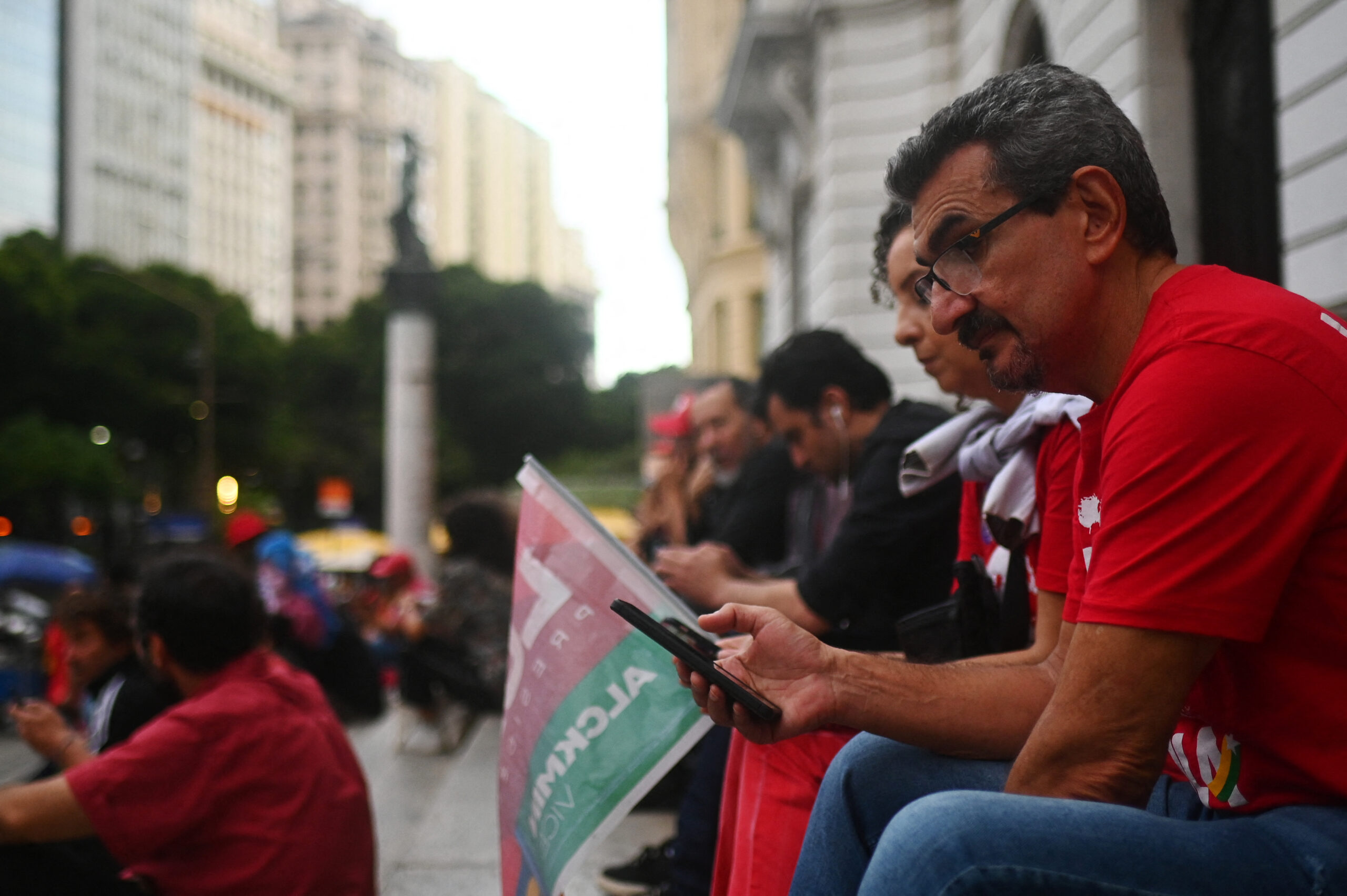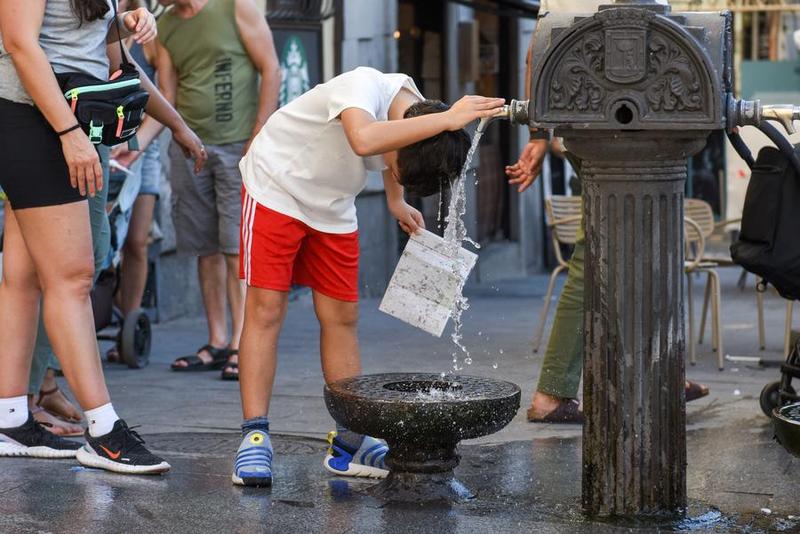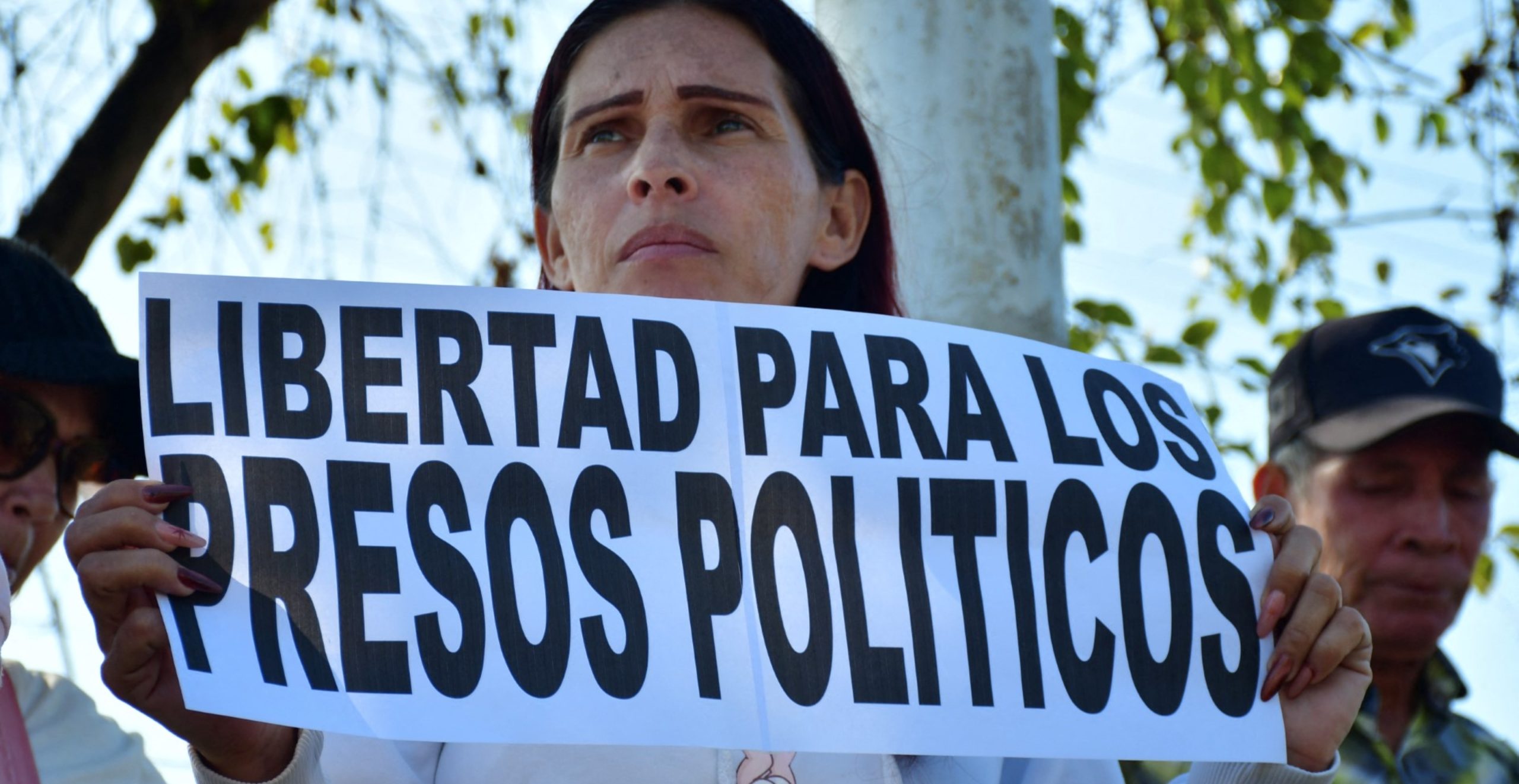International
Brazil’s dirty campaign: a disinformation guide

| By AFP |
Brazil’s election campaign has been an orgy of mudslinging, social media attacks and outright lies so outlandish they are sometimes comical.
Here is a look from AFP’s fact-checking team at some of the top disinformation techniques — none of them particularly high-tech — used in the online proxy wars between backers of far-right incumbent Jair Bolsonaro and leftist rival Luiz Inacio Lula da Silva ahead of the country’s presidential runoff on October 30.
Quotes out of context
One of the main methods seen in the social media disinformation campaign is editing context out of video footage to make the candidates appear to say something they haven’t.
For example, a video was widely shared Wednesday by Bolsonaro backers, including influential Evangelical pastor Silas Malafaia, in which Lula says: “I have to lie. Politicians have to lie.”
The veteran leftist did utter those words the night before — but was mimicking Bolsonaro when he said it.
“Bozo (his mocking nickname for the incumbent) is a compulsive liar,” Lula, 76, said in a podcast interview. “He literally says, ‘I have to lie.’”
Bolsonaro, 67, has also been targeted with the tactic.
In one clip, he appears to say he will name scandal-plagued ex-president Fernando Collor to his cabinet to “confiscate retirees’ pensions.”
In reality, Bolsonaro was talking about a rumor swirling online.
Pink menace
Bolsonaro warns ex-president Lula (2003-2010) wants to “impose communism” in Brazil, and often points to crises in other Latin American countries as examples of the dangers of left-wing rule.
Amid signs of a new “pink tide” emerging in the region — with leftists now in power in Argentina, Chile and Colombia, among others — the disinformation campaign has cast a wide muckraking net.
One viral post accuses Colombian President Gustavo Petro’s leftist government of “authorizing pedophilia,” based on a measure that legalized marriage for minors older than 14.
But the measure was adopted in 2021, under conservative ex-president Ivan Duque.
“Starving locals attack poultry and pig farmers in Argentina,” warns another apocalyptic message, accompanying a video of pillaging that allegedly occurred under leftist President Alberto Fernandez.
In reality, the images came from the Colombian town of Puerto Tejada during protests last year against Duque’s government.
Videos from violent protests in Chile in 2019 under conservative ex-president Sebastian Pinera have likewise been misrepresented as happening under current President Gabriel Boric, who took office last March.
Fake polls
Fake opinion polls showing one candidate with a large lead are another common tactic.
Sometimes the supposed polls are completely fabricated. Other posts use editing software to change the figures in TV news reports.
In fact, most real polls give Lula a small lead over Bolsonaro.
‘Proof’ of fraud
Multiple claims of fraud went viral after the first-round election on October 2, in which Lula took 48 percent of the vote to 43 percent for Bolsonaro.
Lula supposedly won more votes than there were inhabitants in a list of cities that circulated widely. But the figures cited are incorrect, and some of the cities don’t even exist.
Other viral posts allege the vote count on election night followed an algorithm in which Lula gained one percentage point and Bolsonaro lost one-half for every 12 percent of polling stations that reported results.
But those numbers do not match actual figures.
Fake articles
Other posts copy the look of established media to spread false news reports.
The G1 news site operated by Globo, Brazil’s biggest media group, is a frequent target.
One screen capture of a supposed G1 article has Lula saying he will confiscate Brazilians’ firearms if elected.
Another quotes him as saying, “Even God can’t stop me from winning this election.”
International
Spain’s irregular migrant population rises to 840,000, study finds

The number of migrants living in Spain without legal residency status continues to rise and has reached 840,000 people, with 91% originating from the Americas, particularly Colombia, Peru and Honduras, according to a report by the Spanish think tank Funcas (Foundation of the Savings Banks).
An estimated 17.2% of the non-EU foreign population living in Spain is in an irregular administrative situation. The estimate is based on the gap between the number of foreign residents effectively living in Spain, according to the National Statistics Institute (INE), and those who hold a residence permit, benefit from international protection, or are in the process of obtaining it.
The data, as of January 1, 2025, point to a notable and sustained increase in irregular migration since 2017, when the estimated figure stood at around 107,000 people, representing 4.2% of the non-EU population residing in Spain.
By origin, migrants from the American continent stand out, totaling around 760,000 people, or 91% of all irregular migrants. Colombians account for nearly 290,000, followed by Peruvians with almost 110,000, and Hondurans with about 90,000. Migrants from Africa (50,000), Asia (15,000) and Europe (14,000) trail far behind.
The figures predate Spain’s latest immigration regulation reform, which came into force in May 2025 and introduces measures to ease access to legal status through residency ties. According to Funcas, the reform would, in principle, tend to reduce the number of migrants in an irregular situation.
International
Historic snowstorm paralyzes Toronto after 60 centimeters of snow

Toronto, Canada’s largest city and the fourth most populous in North America, was largely paralyzed on Monday after a historic snowstorm dumped up to 60 centimeters of snow and sent temperatures plunging to -15 degrees Celsius, authorities said.
Late Sunday, as the scale of the snowfall became clear, city officials declared a climate emergency, triggering extraordinary measures including parking bans on several major streets to facilitate snow removal operations.
Toronto’s public transit authority reported that while some buses remain immobilized, subway and streetcar services are operating with relative normality, though localized disruptions may occur.
A similar situation is affecting the city’s commuter rail network, which remains operational but is experiencing significant delays on its main routes due to the severe weather conditions.
International
Venezuela frees at least 80 political prisoners, NGO says

At least 80 political prisoners were released on Sunday across Venezuela, human rights group Foro Penal reported, as the broader process of detainee releases continues at a slow pace under the interim government.
Foro Penal’s director, Alfredo Romero, wrote on social media platform X that verified releases took place nationwide and that the figure could rise as more confirmations are completed.
Attorney Gonzalo Himiob, also from Foro Penal, said the excarcelations occurred during the early hours of the day and emphasized that the number is not yet final pending further verification.
The releases are part of a series of steps announced by Venezuela’s interim leader, Delcy Rodríguez, who took power after the capture of former President Nicolás Maduro in a U.S. military operation on Jan. 3, 2026. Rodríguez has pledged a significant number of liberations but has been criticized by opposition groups and rights organizations for the slow and nontransparent nature of the process.
So far, the Venezuelan government reports that 626 detainees have been freed since December, though independent counts by human rights groups suggest the number of actual political prisoner releases is lower and that many remain behind bars.
Families of those still detained have maintained vigils outside prisons, hopeful for further releases even as broader concerns about political imprisonment and due process persist.
-

 Central America5 days ago
Central America5 days agoMazatenango Carnival cancelled amid State of Siege in Guatemala
-

 International5 days ago
International5 days agoTrump to invite Venezuela’s interim president Delcy Rodríguez to Washington
-

 International5 days ago
International5 days agoMarkets rise as Trump halts Europe tariffs and floats Greenland agreement framework
-

 International5 days ago
International5 days agoVenezuela’s interim president predicts 37% increase in revenues for 2026
-

 International3 days ago
International3 days agoTrump-Era Defense Plan Prioritizes Border Security and Scales Back Global Commitments
-

 Internacionales4 days ago
Internacionales4 days agoMajor winter storm threatens “catastrophic” ice and snow across much of the U.S.
-

 Central America4 days ago
Central America4 days agoGuatemala’s president rules out negotiations with inmates after prison riots
-

 International5 days ago
International5 days agoFour minors killed in deadly clash between FARC dissidents in Colombia’s Amazon
-

 International5 days ago
International5 days agoJapan reopens Kashiwazaki-Kariwa Plant despite public concerns
-

 International3 days ago
International3 days agoBogotá and Quito Seek Dialogue After Tariffs and Power Cut Escalate Tensions
-

 International4 days ago
International4 days agoGuatemala considers sending high-risk gang members to military prisons
-

 International2 days ago
International2 days agoDelcy Rodríguez seeks political agreements after Maduro’s ouster
-

 International4 days ago
International4 days agoRights group says over 5,000 killed in Iran protests, mostly civilians
-

 International2 days ago
International2 days agoFederal immigration agents kill man in Minneapolis, sparking protests and outrage
-

 International17 hours ago
International17 hours agoHistoric snowstorm paralyzes Toronto after 60 centimeters of snow
-

 International17 hours ago
International17 hours agoSpain’s irregular migrant population rises to 840,000, study finds
-

 International17 hours ago
International17 hours agoRights group says nearly 6,000 killed in Iran protest crackdown
-

 Central America17 hours ago
Central America17 hours agoGuatemala seizes over a ton of cocaine hidden in flour at Pacific port
-

 International17 hours ago
International17 hours agoVenezuela frees at least 80 political prisoners, NGO says
-

 International17 hours ago
International17 hours agoEU launches new probe into X over AI-generated fake nude images
-

 International17 hours ago
International17 hours agoFrance debates ban on social media for children under 15
-

 International17 hours ago
International17 hours agoSevere winter storm grips U.S., leaves multiple dead as extreme cold persists


















































































